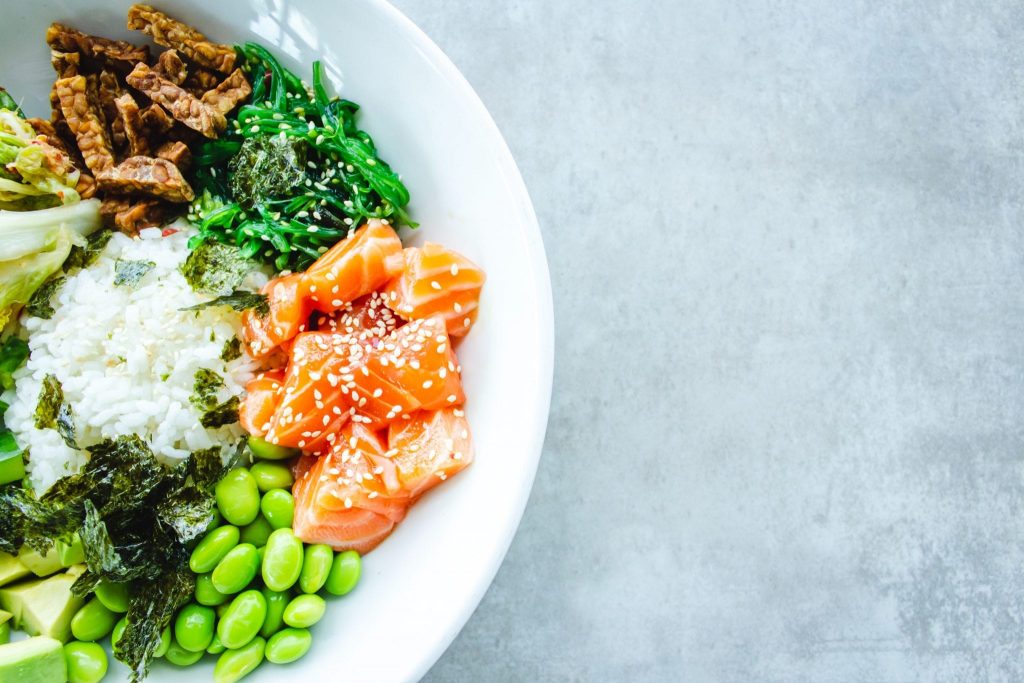
1. Reduce the number of carbohydrates in your daily diet
Reduce the amount of readily and simple carbohydrates, or carbohydrates that have a high glycemic index. Reduction of glucose in the blood, accordingly sharp rises of allocation of insulin allows reducing appetite and not to feel sharp hunger. Carbohydrate reduction is a simple quick, fairly easy way to lose weight.
According to the rules of a healthy diet, carbohydrates should account for 45-65% of the daily calories needed. If your daily calorie needs are 1600, then 720-1040 calories must are provided by carbohydrates.
2. Do not add sugar
In general, the addition of sugar has become a problem in the modern world. We are used to eating sweets, our taste buds are used to it, so we want more sweets. If tea or coffee does not taste without sugar, reduce it gradually, add lemon zest, cinnamon, or cardamom, try to get used to new flavors.
3. Add fiber
Fiber, bran, oilseeds can be added to yogurt, salads, etc. Fiber increases the amount of food, which gives a feeling of satiety. More fiber means a longer feeling of satiety, as well as the benefits and health of the intestines.
4. Eat protein
The need for protein is calculated at 0.8 g per kg of body weight. Preferably for women need 45-50 g of protein per day, for men, respectively, 55-60 g of protein per day. If you focus on the daily energy needs of the body, then 10-25% of daily calories should be due to protein.
The daily requirement of protein depends on a person’s physical activity, that is, if you do sports, the body needs more protein and vice versa.
5. Eat fats
The daily need for fats individually for you and can be calculated from the daily calories needs. For example, if in your case it is 1600 calories, of which 20-35% of calories should be provided by fats, ie 320-560 calories are fat.
6. Choose vegetable oils
Our body needs unsaturated fatty acids, in particular omega 3 polyunsaturated fatty acids, which we can get from vegetable oils such as olive, flaxseed, and others. It should be noted that flaxseed oil is the leader among other vegetable oils with omega-3 fat content, namely 53%.
7. Eat sea fish
Fish is a source of omega-3 fats, which are not found in other foods. Fish also contains a large amount of vitamin D and other healthy substances.
8. Seeds and nuts
Seeds and nuts are a source of useful fats, vitamins, and trace elements. Nuts are a healthy snack that perfectly satisfies hunger. Seeds and nuts can be added to salads, making them delicious and interesting. Of course, keep in mind that nuts are also high in calories, so don’t eat more than one handful a day.
9. Eat vegetables
Vegetables are rich in fiber and water. Vegetables are low-calorie foods that contain a large number of useful nutrients and oxidants – in contrast to the “empty calories” of snacks, chips, and sweets. Vegetables give a feeling of satiety, fullness of the stomach, the pleasure of eating. As a result, we do not psychologically feel that we are limiting ourselves, that we lack food.
10. Keep healthy food in sight
It is convenient to keep in a visible place a basket of fresh fruit, a container with chopped carrots, nuts, seeds, yogurt, in case of sudden hunger.
Picture Credit: Unsplash
